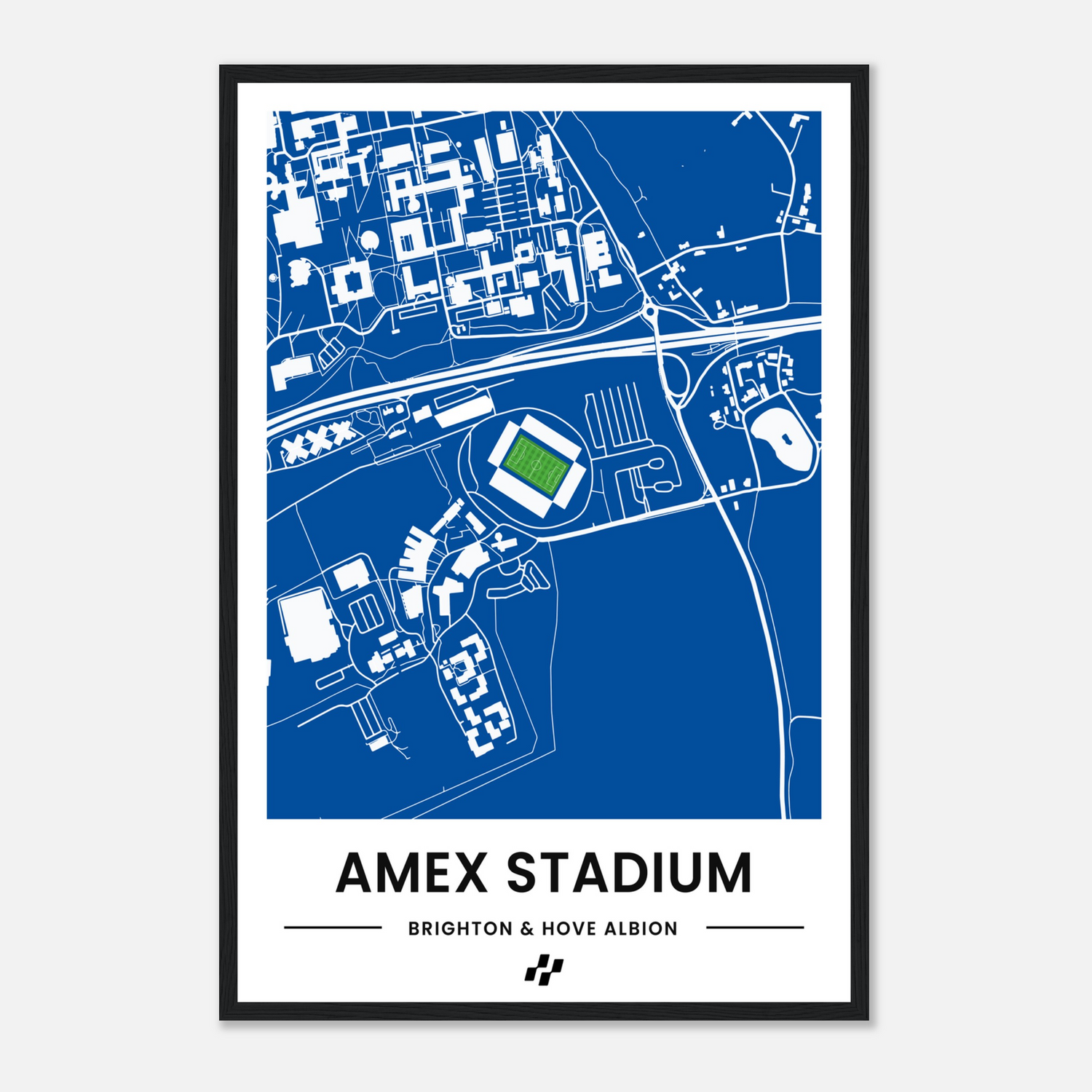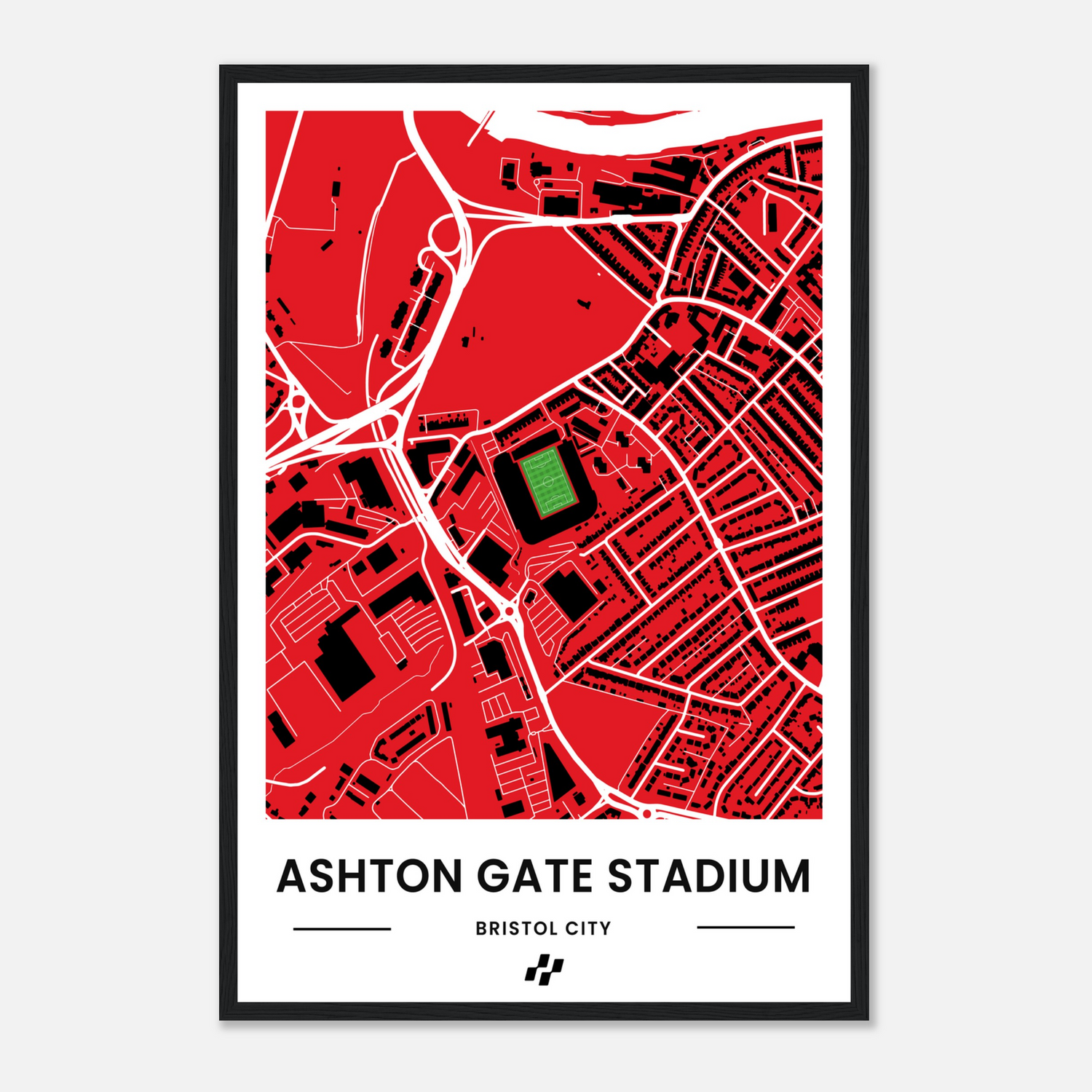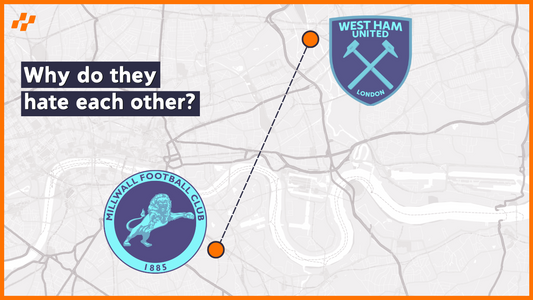
How Good Was Robin Van Persie?
Share
His petulant attitude nearly derailed his career, but his unshakeable ambition and explosive scoring ability made him one of the Netherlands' greatest football players.
In this article, we look at how good Robin Van Persie was, from his early years to his playing style and his rise in the football world.
Watch the video on our YouTube channel here
Early Years
Born on August 6th, 1983, Van Persie was known as a rebellious young talent with a passion for football. After his parents' divorce, he was raised by his father and struggled to stay out of trouble at school, earning almost daily exclusions for his misbehaviour. He was known as a “juvenile troublemaker who loves nothing else but football”.
Van Persie was kept out of even more trouble than he would have gotten into because of his love of football. From 1997 to 1999, he played for Excelsior as a youth. Excelsior’s philosophy was to recreate street football and they allowed kids to play without too much interference.
At the age of 13, Van Persie was tipped for stardom with observers continuing to compare him to Netherlands legend Johan Cruyff.
After falling out with the Excelsior coaching staff over his "petulant" attitude, the talented Dutchman joined Netherlands' biggest club, Feyenoord, at the age of 16. His attitude was becoming his worst enemy.
An injury crisis at Feyenoord meant he was quickly promoted into the first team, and made his debut for the club at 17, the first of 15 total starts during the 2001–02 season. After starting for Feyenoord in the final of the UEFA Cup, Van Persie received the KNVB Best Young Talent award.
The following season, Van Persie signed a three-and-a-half-year professional contract with Feyenoord. While his goals were appreciated by the coach, his attitude and temperament were not, and a clash with his manager Bert van Marwijk, resulted in Van Persie being demoted to the reserve squad. Van Persie finished his turbulent first full season with the first team with 8 goals in 28 appearances.
During the off-season, Feyenoord attempted unsuccessfully to extend Van Persie's contract, and his deteriorating relationship with Van Marwijk led to him spending the majority of the 2003-04 season on the bench. He played 28 games again, but scored two fewer goals than the previous season. Feyenoord made it known at the end of the season that they were trying to get rid of Van Persie but found few takers due to his previous disciplinary issues.
Arsenal ended up signing Van Persie in May 2004 for a cut fee of £2.75m, with very little competition for his signature. Van Persie had a great chance to learn from the likes of Thierry Henry and Robert Pires. Whilst he arrived at the Gunners as a winger, Wenger believed he would be more effective further up the field and a replacement for ageing veteran Dennis Bergkamp.
Move to Arsenal
He didn’t get off to a great start at Highbury, regularly finding himself used as a sub. The old trouble with the red mist didn’t help. He was sent off for a foul on Graeme Le Saux which his manager refused to defend and he spent more time on the sidelines as a result. But in his first two seasons in north London, Van Persie played 79 games and scored 21 times. A decent but hardly stellar return.
The following two seasons were a lot better scoring 24 goals in 52 games, but he was out injured in 2007/08 with injuries.
Arsene Wenger, on the other hand, remained patient with him and it paid off, because in the next five seasons Van Persie scored over 20 goals in four of them, only falling short in 2009/10 due to those recurring injury issues.
His final season at Arsenal in 2011/12 was easily his best, as he scored 37 goals in 48 games and was virtually unplayable at times. Van Persie was entering his prime years and won the Premier League Golden Boot.
During his time with Arsenal, he established himself as one of the club's most feared forwards, scoring 132 goals in 278 appearances across all competitions, averaging 0.47 goals per match.
Move to Man Utd
In 2012, Van Persie made the controversial decision to leave Arsenal and join their bitter rivals Manchester United for a fee of £22.5million. The move was, to say the least, unexpected. Now 29 and at the peak of his form, clearly Van Persie wanted to win trophies and knew he had little chance of doing so at the Emirates.
The move, however, paid off, Van Persie is widely regarded as one of Sir Alex Ferguson's greatest signings, and it's difficult to disagree. Rene Meulensteen, United's assistant coach, persuaded Van Persie to wear the number 20 shirt, telling him he'd deliver the club's 20th Premier League title. It was a bang on prediction.
During his three-year stint at Old Trafford, he had a huge impact for the Red Devils. In his first season, he scored 30 goals and effectively won United the Premier League title, finishing as the league's leading scorer for the second year in a row. He also won the Golden Boot as Europe's top scorer that year.
When Sir Alex Ferguson retired, newly appointed manager David Moyes couldn’t knock the goals out of him, Van Persie netted 18 in 28 games in his second season. However, injuries were hampering his form, and by the time Moyes had been sacked and Louis van Gaal had turned up, the 2014–15 season was to be his last at Old Trafford.
Altogether, Van Persie scored 58 goals and made 21 assists in 105 appearances for the club.
Style of Play
Van Persie combines flawless technique, flair, quick thinking and precision finishing. His weaponry made him almost unstoppable.
His goal against Aston Villa for Manchester United exemplifies his clinical and impressive technique.
The Dutchman's ability to score goals from nothing was impressive. Defenders appear to have Van Persie in the box under lock and key, but once the ball is at his feet, he leaves them clutching at thin air before firing the ball past a helpless goalkeeper.
Van Persie was not your typical attacker in that he excelled in a variety of forward roles throughout his career, beginning as a winger at Feyenoord, then operating as a No. 10 at Arsenal and then flourishing as an out-and-out striker in the box for the Gunners.
During his stellar career for both club and country, the Dutchman demonstrated that he possessed the skills, technique, and, more importantly, intelligence to adapt his game to different systems. His experience playing out wide during his three years at De Kuip also helped Van Persie become a more rounded player by the time he moved to Old Trafford.
Ferguson gave him more freedom to operate in a floating role in forward areas all over the pitch, culminating in Van Persie recording a stunning 45 goal contributions in 48 matches in all competitions for the Red Devils in his first season.
International Career
Van Persie's international career with the Dutch national team was equally successful as his club career. He made his debut for the Oranje in 2005 and went on to score 50 goals in 102 caps for his country, making him the Netherlands' all-time leading goalscorer. From 2013 to 2015, he was captain of the team and represented Netherlands in three European Championships in 2008, 2012, and 2016, as well as three FIFA World Cups in 2006, 2010, and 2014, where he finished as the tournament's top scorer.
Retirement
After a successful stint with Manchester United, Van Persie moved to Turkish side Fenerbahçe in 2015. Van Persie played regularly in Turkey during his first season, but saw his playing time limited in the following two seasons due to injuries. In January 2018, both the club and the player agreed to a contract buyout, and he returned to Feyenoord on a free transfer.
By the end of the season he had helped his boyhood team win the Dutch Cup, his first trophy since the 2013 FA Community Shield. After a brief stint with Feyenoord, Van Persie retired from professional football in 2019.
While there's no doubt that the man had a fiery temper, it was that fire in his belly that propelled him to greatness as a striker. He will be remembered as one of the greatest Dutch football players of all time.





